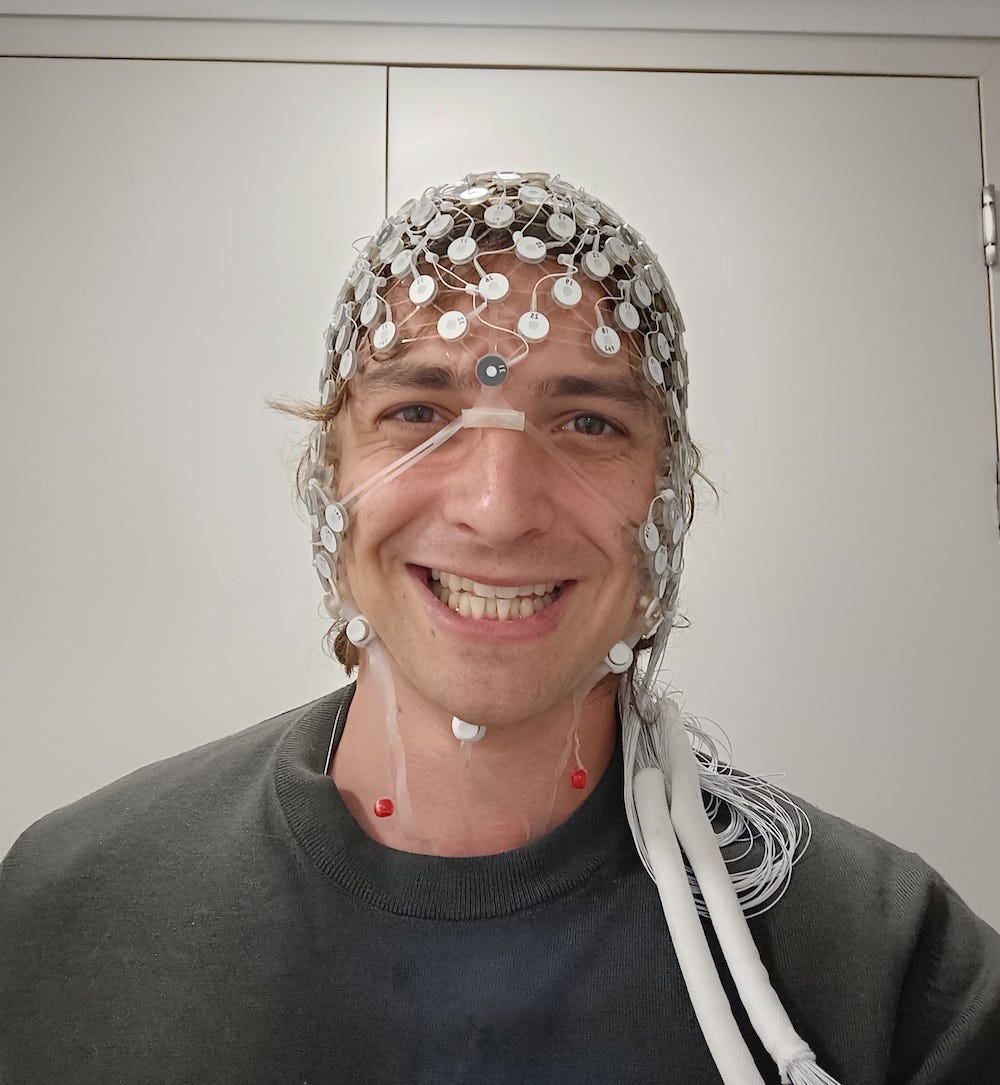The Bigger Picture
Alexander Beiner on dialoguing with entities, and why the internet is psychedelic
Welcome to this week’s Sunday Brunch, our round-up of ecstatic and psychedelic news. It’s just for paid subscribers, but here’s the free mimosa:
I’m back in England this week, to see family and go to a friend’s wedding in Brighton. Honestly, if we’re talking ecstatic experiences, is there anything better than a wedding dancefloor, surrounded by your best friends? Is it any surprise that Shakespeare ended most of his comedies with a wedding dancefloor? Truly ecstatic. It was such a beautiful wedding – one of my best friends getting married in her mid-40s (hope for us all), so the congregation were people who have known and loved each other for 30-odd years. We grew up together and feel like a mycelial network – not exactly separate beings, but old trees grown together.
On the train back from Brighton to London, I finished my friend Alexander Beiner’s new book - The Bigger Picture: How Psychedelics Can Help Us Make Sense of the World. Ali was one half of Rebel Wisdom, the excellent YouTube channel / community movement that gave dusty old spirituality a much-needed coat of paint and called it ‘sensemaking’. RW produced well-made video documentaries and interviews with everyone from Ken Wilber to Jordan Peterson to Iain McGilchrist to (on a much lower plane) me! They did a lot to modernize and galvanize the UK’s geriatric New Age scene, and I miss it.
What exactly does ‘sensemaking’ mean? Well, there are more or less charitable definitions one could proffer. If you were being uncharitable, you could say that ‘sensemaking’ could occasionally be waffly pundits coming up with fancy jargon for everyday things that already existed, thereby making themselves look smarter – sensemaking is just ‘trying to make sense of things’, which humans have always done. ‘Salience landscape’ is noticing what matters to you, ‘Dialogos’ is…er…just…talking to people.
But the best idea in the ‘sensemaking’ movement, to my mind, was that there are multiple possible ways of knowing, and we need all of them to be able to make sense of the dissolving world we find ourselves in – not just the rational scientific, but also the ecstatic-mystical, the embodied, the relational etc. Ali’s book is a beautiful example of these multiple ways of knowing. He integrates quotes from his years of interviewing psychologists, philosophers, physicists and so on, but there are also quotes from the entities he encountered while taking part in DMT experiments at Imperial College!
What I also really like about Ali’s work is the connections he sees between psychedelics and the internet. He understands, as William Gibson and Stewart Brand did, that the internet is incredibly psychedelic – we are constantly being sucked into alternate realities, on our phones, on our laptops, on our gaming consoles, and we often go into trance states as we scroll. And in these altered spaces, we encounter non-human entities – elves, spider-queens, algorithms, memes, conspiracy-theories. And these non-human entities can influence us or even possess us. We need to practice the same discernment and critical thinking whether we’re on our smart phones or DMT.
After the paywall, an ex-hippy Traditionalist’s sceptic view of psychedelics, and is the FDA making it likely that corporates will drop the ‘therapy’ part of psychedelic therapy?



